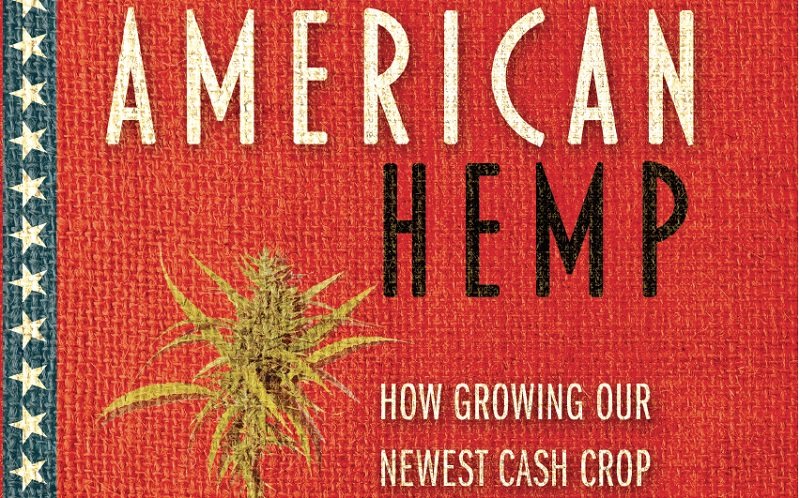
Hemp Book Author: Prepare for an “Interesting Year” in the Industrial Hemp Sector
Jen Hobbs believes the industrial hemp industry is currently at about the same stage in its development as home computers were during their dial-up phase.
“It’s kind of like we’re on dial-up speed right now,” said Hobbs, author of the newly-released book, “American Hemp: How Growing Our Newest Cash Crop Can Improve Our Health, Clean Our Environment, and Slow Climate Change.”
In terms of where the hemp sector is going, “we can easily progress into what we have now with Wi-Fi,” she said, continuing with the computer comparison, “but it’s going to take a little while.”
Hobbs told Hemp Benchmarks that while the passage of the 2018 Farm Bill might have legalized hemp nationally, that change in hemp’s legal status has also created a new set of tensions between federal and state regulators regarding hemp and hemp products.
And given that confusion, she said, “obviously we’ve got to work out the kinks here.”
Federal Efforts
The federal government, meanwhile, is trying to address all these issues.
For example, the Food and Drug Administration (FDA) has scheduled a public hearing in Maryland at the end of May, to figure out how best to deal with the burgeoning CBD market in the U.S. – especially, according to an FDA document, “given the substantial interest in this topic and Congressional interest in fostering the development of appropriate hemp products under the 2018 Farm Bill.”
At the same time the Department of Agriculture (USDA) has been tasked to come up with regulations and guidance “to implement a program for the commercial production of industrial hemp in the United States.” It also intends to issue those regulations by the fall of this year, ahead of the 2020 hemp planting season.
This scramble by the feds, to set up regulatory guidelines for the new hemp industry, could become even more confusing, said Hobbs. “Obviously every state has their own laws and regulations as far as when the crops can be grown, etcetera,” she added, “so it will be interesting to see how that develops.”
And given the ongoing dispute between states’ rights versus what the federal government decides, those decisions, she added, “may or may not be in the hemp industry’s best interests.”
Big Business has its Own Ideas
Hobbs pointed to three areas in the hemp sector – hemp-derived cannabidiol (CBD), hemp-derived foods and hemp construction materials – as areas where there might be the most potential for future investment.
“I read recently that the EPA (Environmental Protection Agency) gave grant funding to one of the Universities of California for studies into making hempcrete, and to find even more eco-friendly ways to make it,” she said. “That was interesting, especially when you think about the environmental impact of buildings.”
At the same time, big business is already leading the charge on hemp, especially when it comes to CBD products.
Hobbs noted CVS’s recent decision to sell CBD-infused products, a move quickly followed by several other national drugstore chains. And some major beverage companies, including Heineken and Corona have made multi-billion-dollar investments in CBD-infused, non-alcoholic beverages.
As such, federal officials “have put themselves in a very awkward situation” where conflict with state hemp regulators is nearly guaranteed.
“It’s going to be a really interesting year,” Hobbs said.